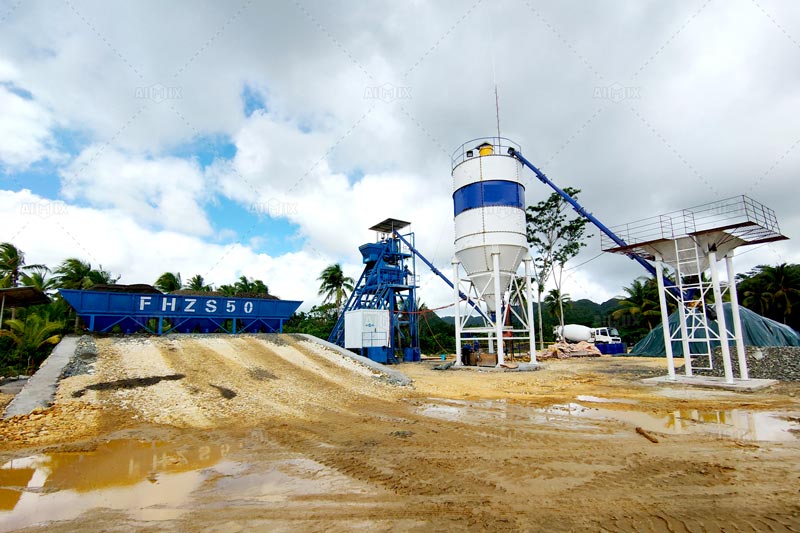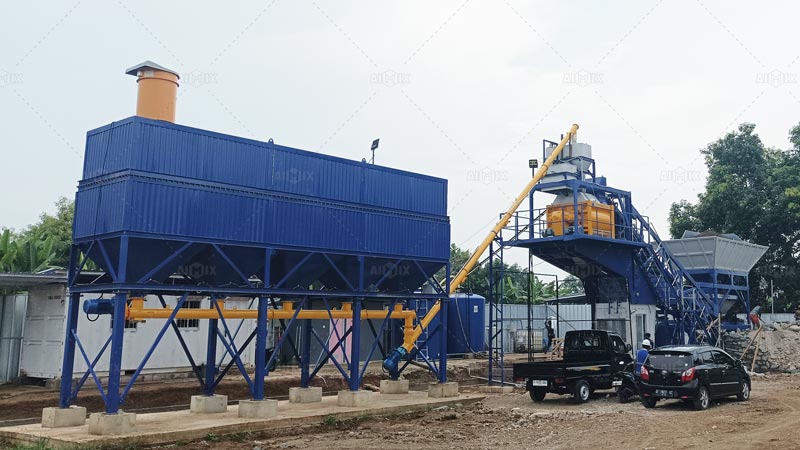A ready-mix plant plays a critical role in the success of residential construction projects. It ensures the consistent delivery of high-quality concrete, which is essential for the durability and safety of residential buildings. Whether the project is large or small, a ready concrete plant offers the necessary flexibility, precision, and efficiency that construction companies need. This article explores the significance of ready-mix plants in residential projects, the benefits they provide, and how they contribute to the overall construction process.
Understanding the Role of a Ready-Mix Plant
A ready-mix plant(planta elaboradora de hormigon) is a facility where concrete is manufactured and prepared for delivery to construction sites. The plant combines a precise mix of cement, aggregates, water, and additives to create concrete that meets the specific requirements of a project. The main advantage of using a ready concrete plant is the consistency and quality control it offers. The concrete is mixed under controlled conditions, ensuring the correct proportions of materials are used for every batch.
In residential construction, the demand for different concrete mixes depends on the type of structure being built. For example, foundations, driveways, and floors all require different types of concrete. A ready-mix plant can customize the concrete mixture according to the specific needs of each phase of construction, ensuring optimal performance in terms of strength, durability, and workability.

Benefits of Using a Ready-Mix Plant in Residential Projects
Consistency and Quality Control
One of the main benefits of using a ready-mix plant is the consistency it provides. Every batch of concrete is produced with precise measurements and undergoes rigorous quality control processes. This ensures that the concrete meets the required specifications for each stage of construction. Whether it’s a small residential project or a large development, maintaining high standards of quality is crucial to the project’s long-term success.
Efficiency and Time Savings
Time is a crucial factor in any construction project, and ready-mix plants contribute significantly to improving efficiency. Since the concrete is already mixed at the plant, construction teams don’t have to spend time mixing it on-site, which can delay the process. The concrete is delivered to the site in a ready-to-use state, allowing workers to focus on other tasks, thereby speeding up the overall construction timeline.
Reduced Labor and Material Costs
Using a ready concrete plant eliminates the need for labor-intensive on-site mixing. This reduces the number of workers required, cutting down on labor costs. Additionally, because the concrete is mixed accurately at the concrete plant(planta de hormigón), there is less waste, which helps reduce material costs. The exact quantity of concrete needed for the project is delivered, minimizing the likelihood of over-ordering or under-ordering materials.
Customization for Specific Needs
Each residential project has its unique requirements, depending on the structure and the local climate. A ready-mix plant offers flexibility in producing concrete with different properties, such as varying strengths or slump levels. For example, some areas may require concrete that can withstand extreme temperatures or moisture conditions. The plant can adjust the mix to ensure the concrete will perform well under these conditions, providing better long-term results for residential buildings.

The Role of Mobile Concrete Plants in Residential Projects
Mobile concrete plants are becoming an increasingly popular option for residential construction projects, particularly when the job site is in a remote or difficult-to-access location. These plants are portable and can be set up quickly on-site, making them an excellent choice for projects that need flexibility or are located away from fixed ready-mix plants.
Flexibility and Accessibility
Mobile concrete plants are ideal for residential projects where concrete demand is relatively low or fluctuating. These plants can be transported easily to different locations, allowing contractors to produce fresh concrete as needed. This is especially beneficial for smaller residential developments or renovation projects where the volume of concrete may not justify the use of a larger, stationary ready-mix plant.
On-Demand Concrete Production
Mobile concrete plants offer the advantage of producing concrete on-site, ensuring that it is always fresh when it is needed. For residential projects that require smaller batches of concrete at different stages, a mobile plant provides the ability to mix concrete on-demand. This reduces the risk of waste and ensures that the concrete is of the highest quality when delivered to the site.
Reduced Transportation Costs
Since mobile concrete plants(planta de hormigón movil) can be set up near the construction site, transportation costs are significantly reduced. Instead of hauling concrete over long distances, which can lead to delays or the need for additives to extend the concrete’s usability, the concrete is mixed locally. This not only ensures the freshness of the concrete but also reduces logistical costs, making it a cost-effective solution for residential projects.
Considerations for Choosing the Right Concrete Plant
Project Size and Scope
The size and scope of the residential project will determine whether a stationary ready concrete plant or a mobile concrete plant of AIMIX is the best option. Large-scale developments with consistent and high-volume concrete needs will benefit from the efficiency of a stationary concrete plant. However, smaller residential projects may find mobile plants more suitable due to their flexibility and cost-effectiveness.
Location and Accessibility
The location of the project site is another important factor to consider. If the construction site is located in a remote area or has limited access, a mobile concrete plant may be more practical. For urban areas or locations with good access to infrastructure, a stationary ready-mix plant will likely be more efficient.
Concrete Quality and Specifications
Regardless of whether a mobile or stationary plant is chosen, it is essential to ensure that the concrete meets the required quality standards for the specific residential project. Both types of plants offer high-quality concrete, but contractors must work closely with plant operators to ensure that the mix is tailored to the needs of the structure.
Conclusion
Ready-mix plants play a vital role in the successful completion of residential construction projects. From ensuring consistent concrete quality to saving time and reducing costs, these plants offer numerous advantages that streamline the construction process. Whether using a stationary ready concrete plant for large projects or a mobile concrete plant for smaller, more flexible jobs, the right plant can significantly enhance the efficiency and quality of any residential development. By choosing the appropriate plant based on the project’s size, location, and concrete needs, contractors can ensure that the construction process runs smoothly and results in durable, high-quality homes.